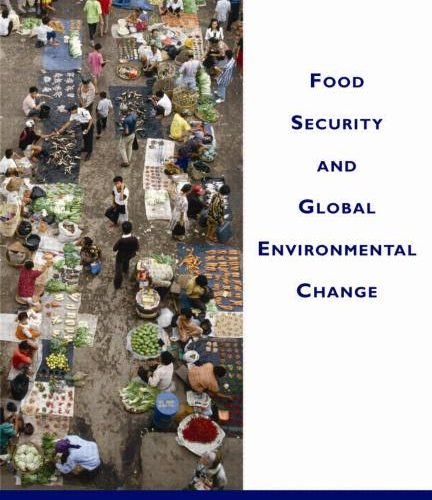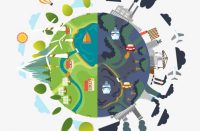Irrigation accounts for 70 per cent of the world’s fresh water use, so it has been evident for many years that food security is considered a greater issue, if less immediately critical, than drinking water. Add climate change into the mix, and what was already a difficult global problem becomes significantly more so.
Irrigation accounts for 70 per cent of the world’s fresh water use, so it has been evident for many years that food security is considered a greater issue, if less immediately critical, than drinking water. Add climate change into the mix, and what was already a difficult global problem becomes significantly more so.
The nexus of water, food, and climate change is the focus of this book. Its central goal is clearly expressed in the preface: “. . . as the requirement for more equitable access to food for all grows, so too grows the need for best science to under pin the development of more effective food systems.”
The 22 chapters in this edited volume provide an excellent compendium of the issues that arise when growing populations, limited availability of water and early impacts of climate change impinge on the world’s food supply. The five section headings move from conceptual overview, through theoretical framework, to practical application:
1. Food Security and Global Environmental Change
2. Vulnerability, Resilience and Adaptation in Food Systems
3. Engaging Stakeholders
4. A Regional Approach
5. Food Systems in a Changing World.
Each section closes with a chapter entitled “Main Messages.”
The book is tightly and well written. Few people will read it from cover to cover because its subject matter deals with – as it must –a diverse range of topics. Some readers will be more interested in the framework for analyzing the nexus of water, food and climate change; others will seek specific issues, among them involving stakeholders who have been ignored; reducing the gap between science and policy; or designing a regional program. Anyone dealing in detail with climate change, water and food security will have to consult the book, and those who want an introduction to the topic can get that overview by reading the first and last chapters.
Somewhat surprisingly, only one Canadian author contributed to this volume: Mike Brklacich of Carleton University. About half the authors are from the USA or the UK, with most of the rest from European institutions. Only three of the authors are based in developing countries. Despite this gap, the book does deal substantively with both nearer- and longer-term problems as climate change begins to affect food supplies in both the Global North and the Global South.
Food Security and Global Environmental Change, ed. John Ingram, Polly Erickson and Diana Livermann, New York: Routledge, 2010, 362 pages
Subscribe now to get more book reviews in your mailbox!
Reviewer Information
David B. Brooks is a natural-resource economist and a member of Alternatives’ editorial board. He was a founding director of Canada’s Office of Energy Conservation, director of the Ottawa Office of Energy Probe, and, for the last 14 years of his formal professional career, associate director for environment and natural resource studies at Canada’s International Development Research Centre. When he is not in a canoe, he identifies ways to conserve fresh water.












